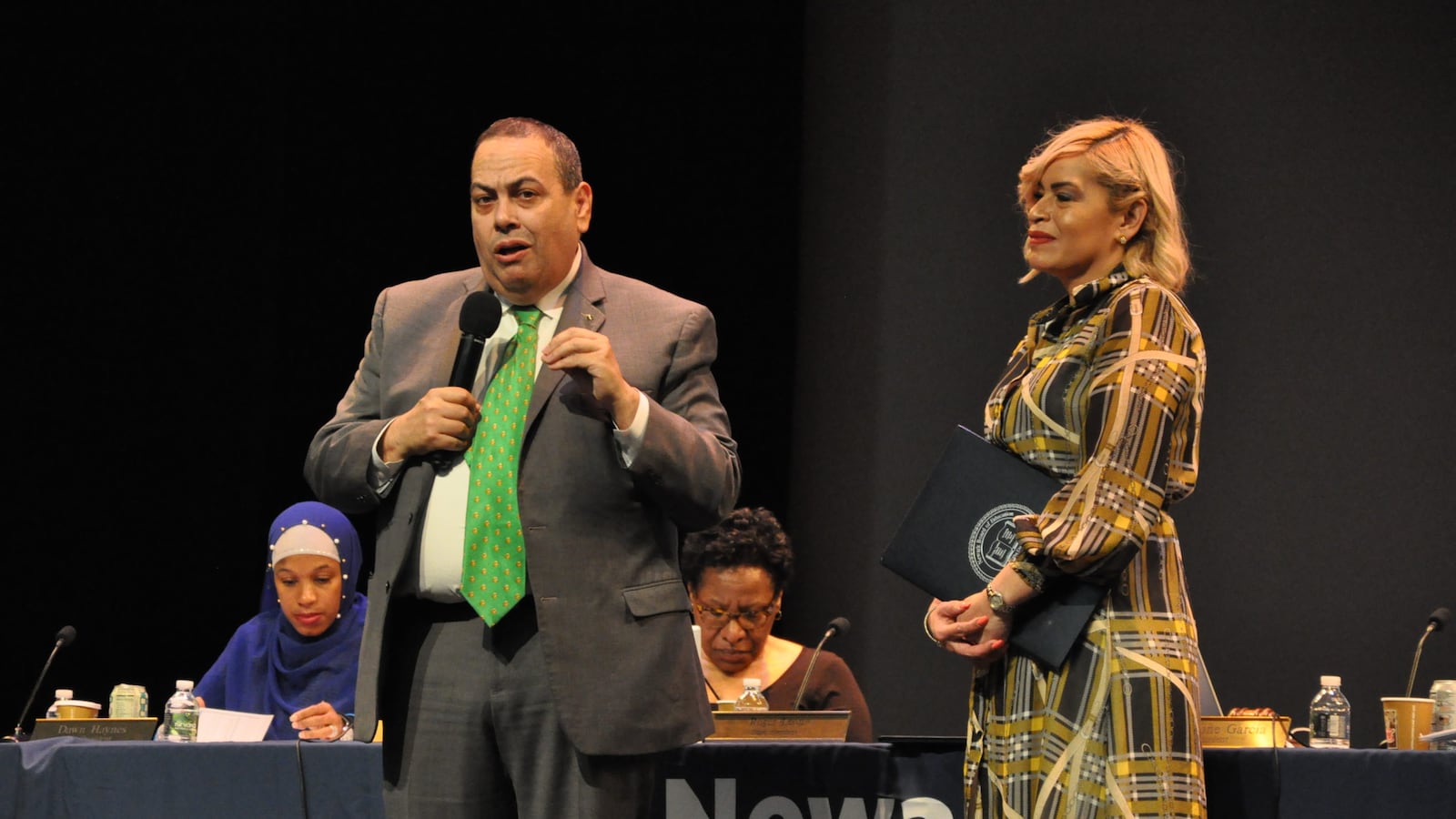In an extraordinary move responding to the raging coronavirus pandemic, the Newark school board will suspend certain policies and grant sweeping authority to the superintendent.
The elected board voted unanimously Thursday to temporarily waive any “bylaws, policies, and procedures” as needed so the board can continue conducting business during the public health crisis, which has led to a statewide school shutdown in New Jersey that Gov. Phil Murphy said could last “weeks to months.”
The board also authorized Superintendent Roger León to take “any and all action necessary and appropriate” to continue operating the district during the crisis, according to the motion the board approved Thursday, which states that León’s actions are still subject to board approval.
“We do not know when this is going to be over,” said board President Josephine Garcia at Thursday’s online board meeting, where she proposed the measure. “What we can forecast is that it’s not going to be over anytime soon, so we need to allow the superintendent to run the district to his best ability.”
New Jersey now has the second highest number of confirmed cases of COVID-19, with more than 8,800 confirmed coronavirus infections and 108 deaths as of Friday. In Newark, which had 155 confirmed cases on Thursday, the district shuttered school buildings earlier this month and said they will remain off limits “until further notice.”
Some school boards across the country have recently granted emergency powers to superintendents so they can continue managing their districts during the crisis, which has forced students to learn from home and teachers to work remotely.
While Newark’s board empowered the superintendent to take any actions he considers necessary, some other boards appear to have handed over more limited authority, such as the ability to pay employees and purchase supplies without board approval. Other boards specified that the superintendent must notify members before taking action.
School boards should research relevant laws and think through the consequences before suspending their policies or granting extra powers to superintendents, said Francisco M. Negrón Jr., chief legal officer of the National School Boards Association. He noted that certain board policies and powers, such as those that involve purchasing or serving students with disabilities, stem from federal and state laws and cannot be waived or transferred.
“Some of those statutorily assigned rights really can’t be delegated,” he said.
If boards decide it is necessary to hand over some of their authority to superintendents in emergency situations, they should clearly explain why this is necessary and ask superintendents to report back whenever they use those special powers, Negrón added. Boards should also remember that they remain responsible for any actions taken in their name.
“The liability never shifts from a school board,” he said. “So while they may delegate powers and duties for operational efficiency, they don’t shift the legal liability.”
The emergency measure that Newark’s board approved was a motion that Garcia put forward, not a board resolution. Because it was not a resolution, it was not listed on the board’s public agenda and the text is not currently available for the public to read.
Before the board voted on the motion, member Reginald Bledsoe asked several pointed questions. He said he knew Garcia had good intentions in proposing the measure, but wanted to be sure it adheres to state law and board guidelines. He also asked whether the idea was to waive all board policies or just a few.
“Are there certain policies that we’re temporarily suspending,” he asked Garcia, “or we’re just throwing everything out the window?”
“We’re suspending all of them,” Garcia responded, saying that one reason is to allow the board to continue meeting virtually, rather than in person, to prevent the spread of the virus.
It is not clear why the board needed to suspend its policies to allow for virtual meetings. The state legislature passed a bill last week, and the state government issued guidance, allowing public bodies to hold meetings online or by phone during emergencies.
Garcia did not respond to questions Friday.
Board member Tave Padilla told Chalkbeat the motion is meant to allow León to do whatever is necessary to meet students’ needs during the crisis.
“This is a worldwide pandemic,” he said. “I don’t think we should tie anybody’s hands right now to move the district forward.”

